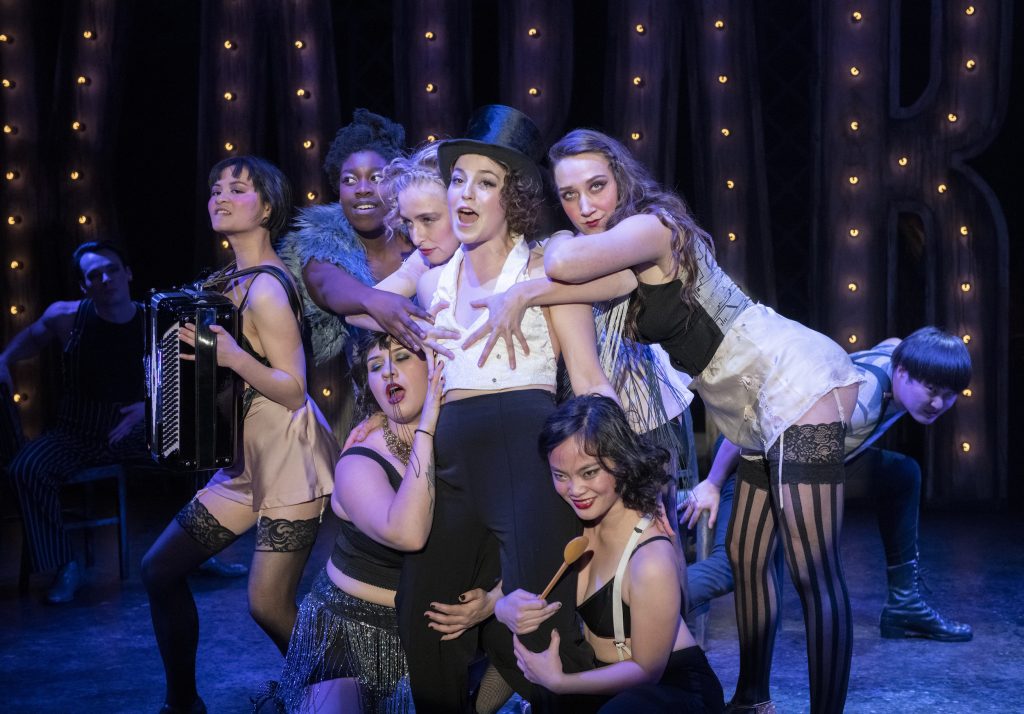
Credit: David Cooper
At Studio 58 until February 24, 2019
Tickets from $22 at ticketstonight.ca or 604-684-2787
Posted February 5, 2019
Willkommen to Studio 58’s Cabaret and welcome to a new star on the horizon. Not that this cast of theatre school students needs any encouragement, but Paige Fraser is such a live wire she sends high-voltage energy coursing through this production. She’s small, agile, physically assertive and, with half of her skull shaved short and the other half curly, she’s bewitchingly androgynous in the role of the Emcee – made famous by Joel Grey in both the original stage production (1966) and the film (1972). Fraser infuses the Emcee with just the right amount of feigned festivity and menace: like a cat watching a mouse that’s in a trap but still struggling. The metaphor of the Cabaret is the rise of the Nazis before the WWII when few imagined the horrors that were shortly to be unleashed by the Third Reich across Europe. In 1933, the year in which Cabaret is set, club-goers were still drinking and dancing.
The late film critic Roger Ebert had this to say about Cabaret, the movie: “This is no ordinary musical. Part of its success comes because it doesn’t fall for the old cliché that musicals have to make you happy.” This is also true of the stage version of Cabaret; it will not make you happy. In fact, director Josh Epstein brings the curtain down on an image so haunting, it takes a moment for the audience to applaud. Up to that point, however, the great time these young performers are having spills over into the whole theatre.
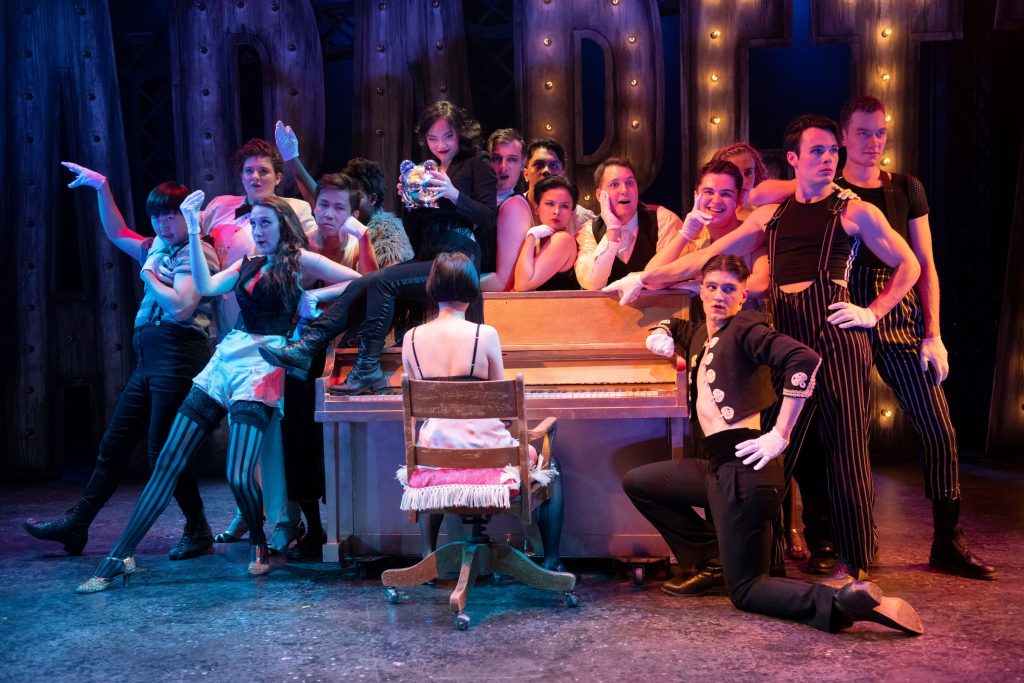
Credit: David Cooper
Inspired by his Weimar Republic experiences, English-American writer Christopher Isherwood wrote the 1939 novel, Goodbye to Berlin which, in turn, was adapted by John Van Druten into the 1951 play I Am a Camera. Based on Van Druten’s play and with music by John Kander, lyrics by Fred Ebb, book by Joe Masteroff, Cabaret premiered on Broadway in 1966 and closed after almost 1200 performances.
Clifford Bradshaw (Dylan Floyde), Isherwood’s alter-ego in Cabaret, is a struggling novelist from Pennsylvania who is drawn to pre-war Berlin, a hub of excitement and sexual liberation. On the train he meets Ernst Ludwig (Nolan McConnell-Fidyk), a German, who helps Clifford find a cheap room at Fraülein Schneider’s (Julia Munčs) rooming house. Ernst involves politically naïve, short-on-cash Clifford into smuggling goods and currency out of Paris.
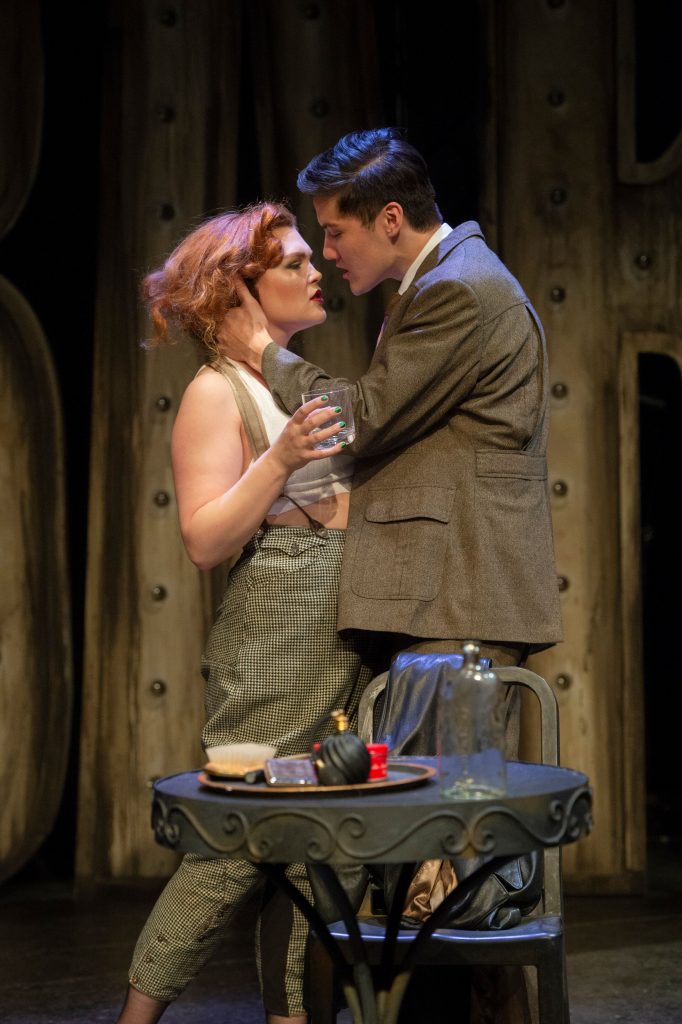
Credit: David Cooper
The hottest club in town is the Kit Kat Klub and Clifford soon finds himself there where he meets English entertainer Sally Bowles (Erin Palm). When she gets sacked by Max (Ella Storey), Sally turns up at Clifford’s room and makes herself comfortable. Romance blooms.
The Kit Kat Klub is where everything is happening: the Kit Kat Girls and the Kit Kat Boys are “beautiful”, says the Emcee. And they are just a phonecall away from a customer taking them home for the night. Sally is also on call.
Studio 58 always excels with large numbers of performers on stage. Choreographed by Shelley Stewart Hunt, the ensemble numbers are sharp, aggressive and sensual. The way they drag chairs around is enough to get you hot and bothered. One silhouetted scene is hilariously explicit with guys and gals going at it.
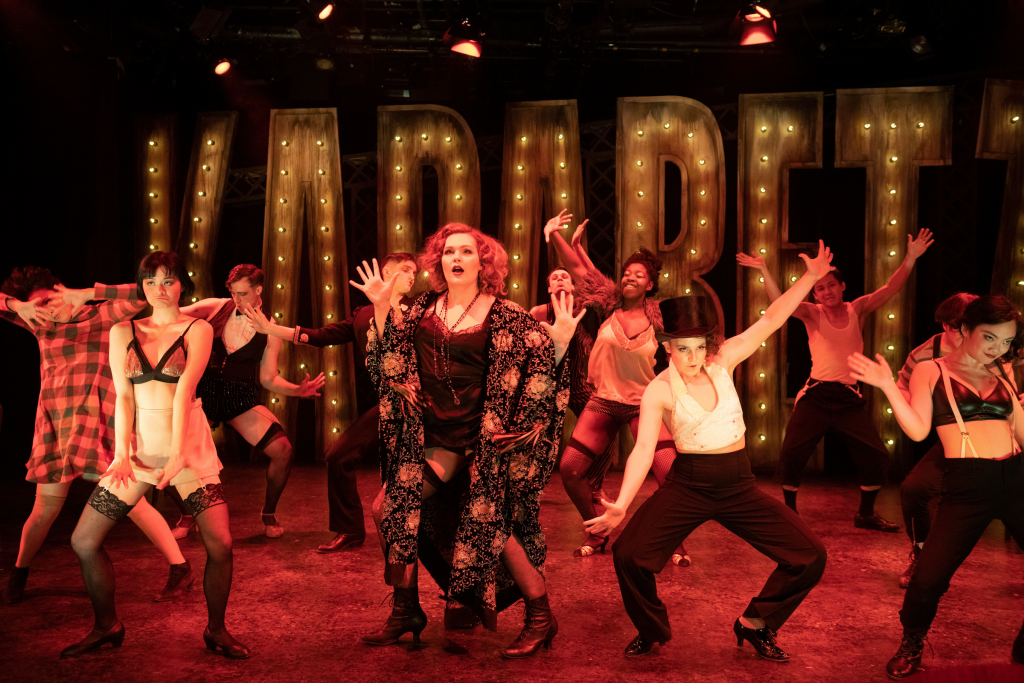
Credit: David Cooper
It’s tough to erase Liza Minnelli, who played Sally in the film, from your mind but Erin Palm’s Sally is luscious, red-headed, loose and she makes fine work of the title song, “Cabaret”. If you’re inclined to tear up, she might even make you misty-eyed with the melancholy “Maybe This Time”. I’ve never actually bought the relationship between Sally and Clifford; my sympathies are with Fraülein Schneider and Herr Schultz (Moe Golkar), a middle-aged couple whose plans for marriage come apart as the Nazi threat escalates.
The costumes (by Amy McDougall) are scantily erotic and Drew Facey’s set, lit by Itai Erdal, is effective. The Kit Kat Klub, after all, is sort of seedy and the rooming house, down-at-the-heels.
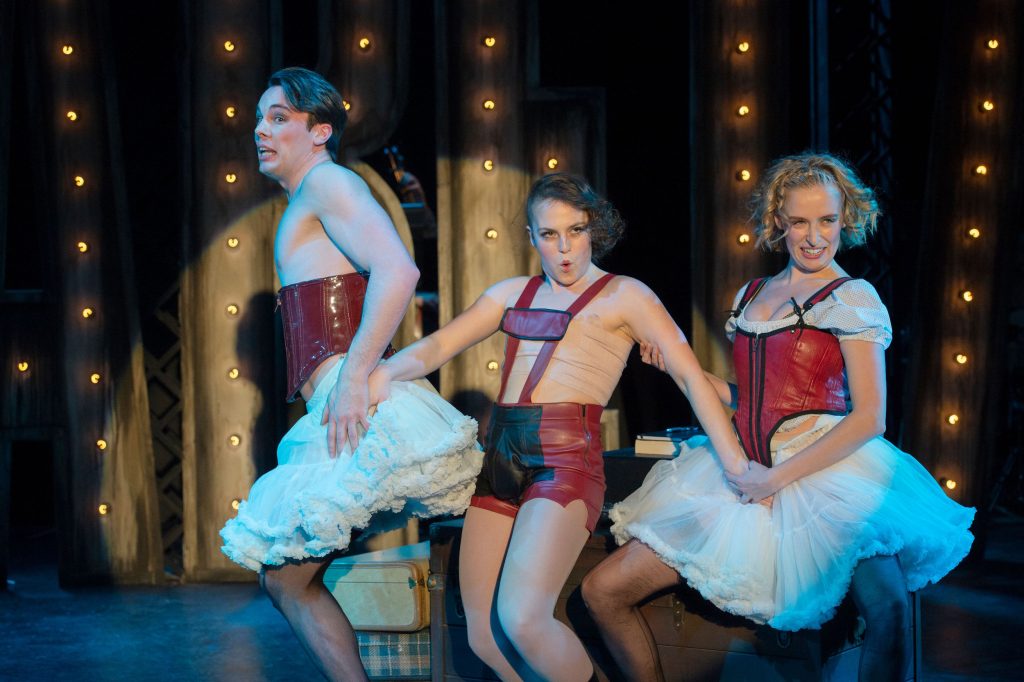
Credit: David Cooper
Before the curtain rises the performers move through the theatre, engaging the audience in conversation. This interaction is followed by a couple of vaudeville numbers that feel de trop: a boxing match and a nurse/patient strip tease schtick. Both suggest the kind of entertainment that went on in clubs like the Kit Kat but here they seem unnecessary.
Christopher King provides musical direction for a six-piece band that puts out bright and brassy sound.
Cabaret is a terrific choice for Studio 58: it’s rowdy and sexy and marks a great directorial debut for Josh Epstein.

